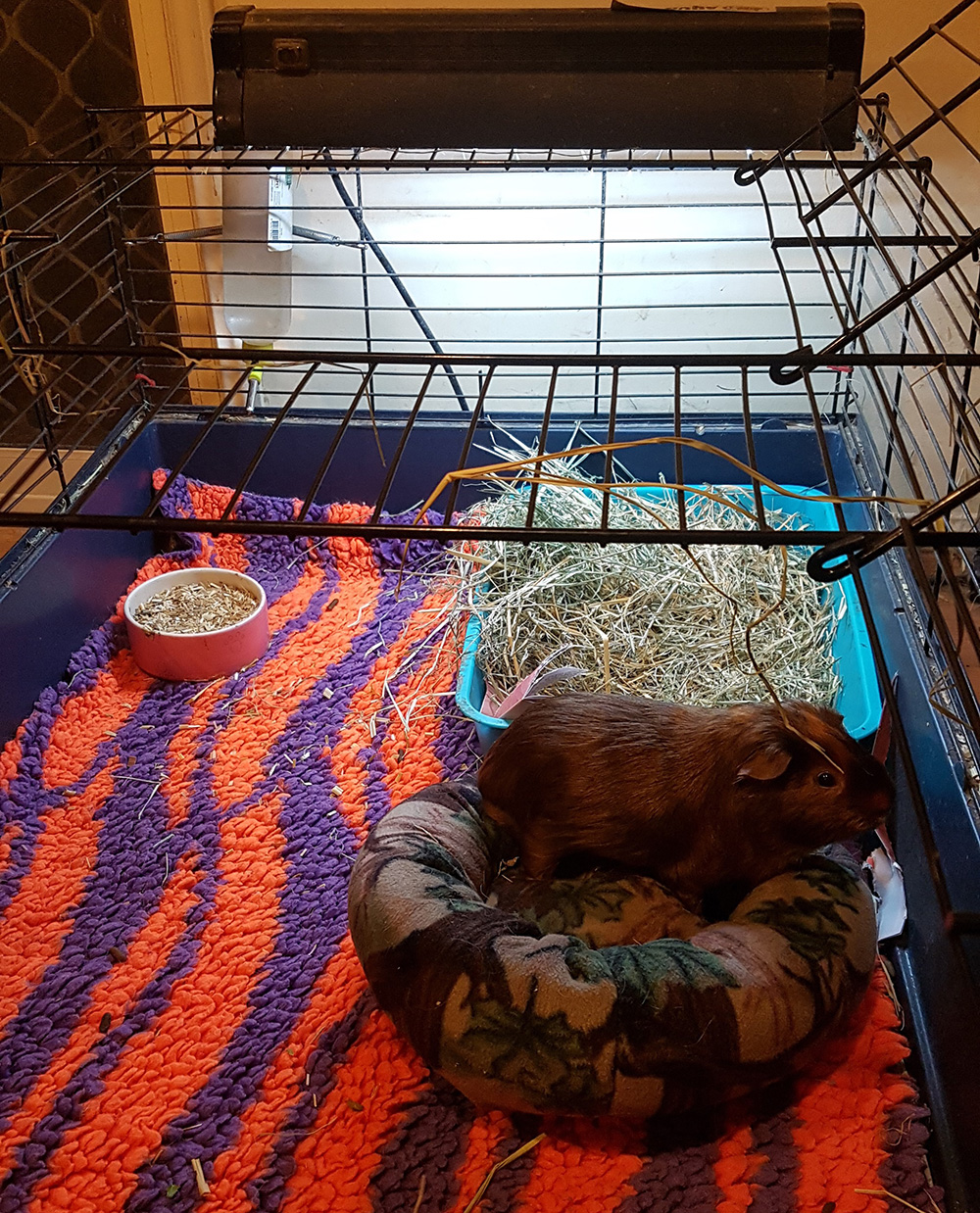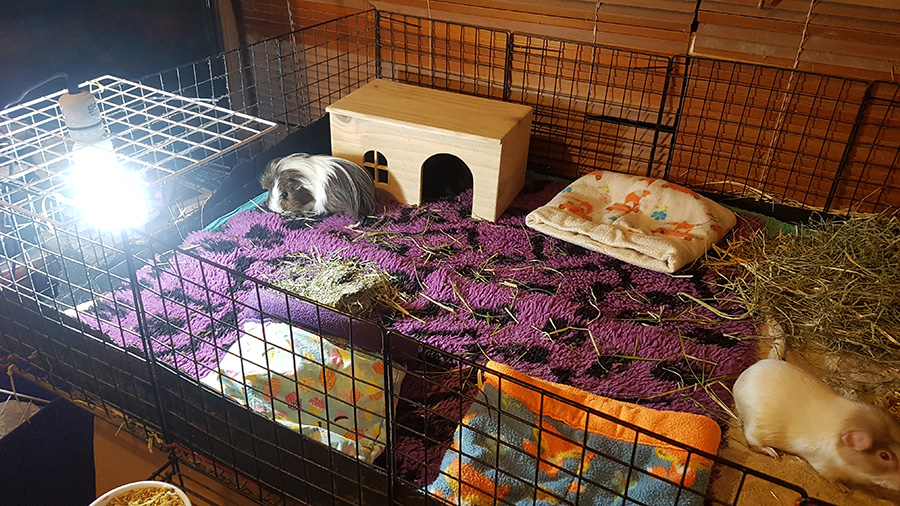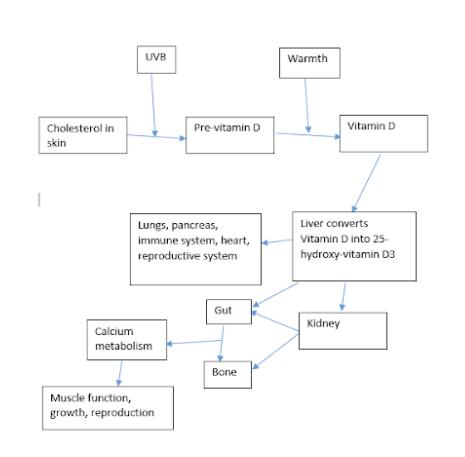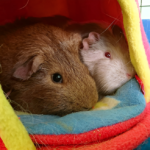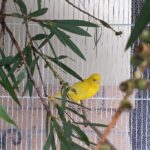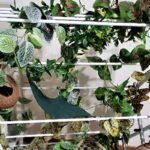There are three forms of UV light (none of which is visible to the human eye), defined by their differing wavelengths: UVA, UVB and UVC. UVA is important in stimulation of normal behaviour, including appetite. UVB reacts with products in the skin and feathers to assist in the production of vitamin D, a vitamin important not only for healthy bones, but involved in many bodily processes. UVC is a damaging form of UV light, and can predispose to cancer. Due to our busy lives, there is a tendency to keep our pets indoors, without exposure to unfiltered natural sunlight, which can result in health issues. Flyscreens, glass windows and other light filters will reduce the amount of UV or prevent any UV from getting to your pet.
As can be seen from this diagram, UVB is used by the body in many organs and for many processes. It is absorbed by the skin and creates Pre-vitamin D, which is then converted into Vitamin D. Vitamin D undergoes further conversion and is then involved in many facets of body function. One of the most important processes relying on Vitamin D is calcium metabolism, which includes calcium absorption. Without adequate calcium the bones can become weak and muscles won’t function properly.
Some of the health issues that can be related to inadequate UV light are:
- Metabolic bone disease – calcium metabolism requires appropriate vitamin D levels, without sunlight these can be lacking and subsequently calcium can be drawn from the bones, making them weak and animals prone to fractures. This may also have an influence on dental disease development in guinea pigs. Appropriate diet, as well as UV supplementation are required for prevention.
- Behavioural issues – UVA influences normal behaviour. Birds that were deficient in UV light subsequently provided with supplementation often display more natural behaviour.
Prevention of health issues
If your pet is kept outdoors and has access to full natural sunlight (but always with shade available) for 20 minutes per day they won’t require supplementation with a UV light. If your pet is kept entirely indoors, it is likely that over time they will become deficient in vitamin D, so we recommend supplementation with an artificial UV light. Animals, particularly birds, see differently to us, and often can see light flickering even when humans can’t. This means the flicker frequency of a light is important when you are choosing one for your pet. We recommend using Arcadia lights (we have some available for purchase) that have an appropriate flicker frequency. It is also important to note that UV light doesn’t penetrate sufficiently through glass or Perspex, so ensure these are not present between your animal and the UV bulb. The bulb needs to be changed every 6 – 9 months as it will stop producing UV beams as it ages. Visible light, without UV, can be produced for years. It is important that the UV light is positioned above your pet and that they have access to shaded areas in case they wish to escape from the light source. It is recommended that the day length be 12 hours of visible light per day, so the light should be on for this period of time each day unless otherwise advised.
If you have any questions about UV lighting for your pet, feel free to discuss with our veterinarians in an appointment.
